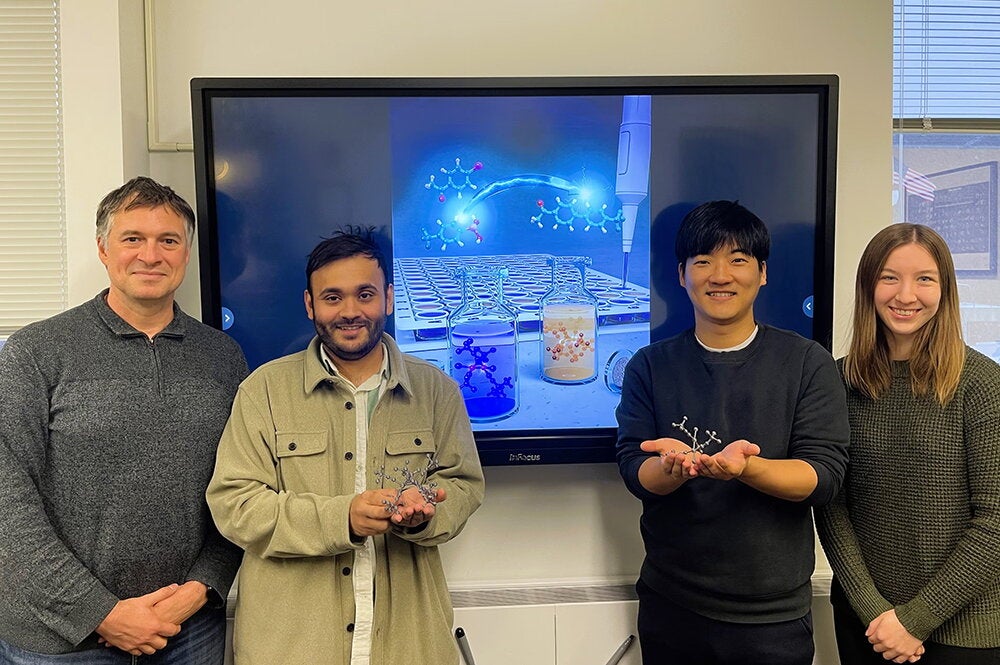
A "hormone challenge" test developed by researchers at the University of Illinois and Washington University could tell women, potentially with 90-percent accuracy, whether they will respond to hormone therapy to fight breast cancer. Hormone therapy poses considerably fewer side effects than chemotherapy or radiation; but it has long been difficult to predict who would respond favorably to this treatment.
The potential 90-percent accuracy of the test is a dramatic improvement over the 50-percent accuracy of traditional tests, says John Katzenellenbogen, a U of I chemist and one of the leaders of the effort. However, he cautions, the test was conducted on a small sample of 40 patients at Washington University Medical School. Further research is needed on a wider sample.
Since the late 1960s, Katzenellenbogen says, physicians have known that if a woman's breast tumor has estrogen receptors (which is true in about two-thirds of the cases), then she might respond to hormone therapy. The problem was predicting which of the "receptor-positive" women would respond.
Under current tests, receptor-positive women only know with a 50-percent accuracy whether they would respond to hormone therapy. Therefore, chemotherapy has been the more reliable choice because women typically have a 75-percent chance of responding positively to it.
Being able to predict a response to hormone therapy with 90-percent accuracy, however, would change the equation.
For a long time now, the most common hormone therapy treatment to fight breast cancer has been the anti-estrogen drug tamoxifen. Estrogen promotes the growth of tumors that have estrogen receptors, Katzenellenbogen says, so tamoxifen blocks the tumor's ability to take up estrogen.
In addition, tumors have a higher uptake of glucose than normal tissue, he says-a trait that plays a key role in their "hormone challenge" test.
By injecting a fluorine-18 labeled estrogen known as FES, researchers obtained images of the estrogen receptors before and after patients took tamoxifen. Then, by injecting the FDG radioisotope, they also obtained images of glucose uptake in tumors before and after patients took tamoxifen.
With these images, Katzenellenbogen says they were able to obtain two key pieces of information: whether the tumor actually had estrogen receptors and whether the receptors were functioning.
If patients had an increase in the glucose uptake rate of 10 percent or more after taking tamoxifen, it meant the estrogen receptors were functioning. Patients with functioning estrogen receptors showed a 90-percent or more chance of responding to hormone therapy.
"This is a non-invasive process," Katzenellenbogen says. "It does involve exposing people to radioisotopes, but the actual dose is similar to what they would get from a CAT scan, which is used routinely."
The hormone challenge test focuses on tamoxifen, the most common hormone treatment, but Katzenellenbogen says there has been a growing move toward aromatase inhibitors-drugs that block estrogen production in postmenopausal women.
Clinical trials are underway at Washington University Medical School to find out if the hormone challenge could also predict which women will respond to aromatase inhibitors.
As he puts it, "We're trying to push this further."


